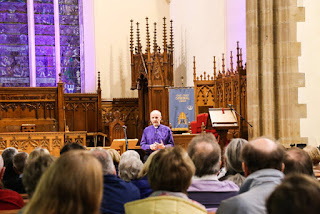Comments on the RCB Climate Change Policy 2017
The RCB has released an updated 2017 Policy on Climate Change and it is much improved over the 2016 version. Gone is the opening line, “ Climate change and the impact of fossil fuels on the environment are extremely complex ”. A much better statement in the first paragraph reflects a more realistic position, “the RCB on behalf of the Church of Ireland seeks to mitigate and lower the Climate Change impact within its investment portfolios”. The most galling sentence in the 2016 policy was this one, “ the fact is that fossil fuels will continue to contribute a major component of this energy mix for the foreseeable future and remain one of the most cost efficient methods of energy production .” This sentence has also gone. The fact is that renewable energy is already much cheaper than fossil fuels in much of the world. In the new policy the emphasis is on reducing fossil fuel exposure is repeated multiple times in the 2017 policy. This new emphasis is great news. Shareholder en...

